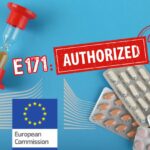
Nanopesticides: Questions about their potential adverse effects
In Science for Environment Policy n°558, the European Commission relays the analysis and recommendations of a team of researchers on the subject of “nanopesticides”. If there are many benefits expected from the use of nanopesticides, notably a lower quantity of active substance used, they can only keep their promises if their risks are well evaluated and minimized. The researchers point out the questions raised by the nanopesticides life cycle, their fate and the toxic effects on the environment . Their recommendations include:
- the development of a precise definition of the term “nanopesticide”
- adapting current testing guidelines to account for the properties and behavior of nanoscale materials, and standardizing testing guidelines for nanopesticides
- environmental assessments of nanopesticides over long periods of time and with appropriate organisms
- a better physical understanding of the risks posed by nanopesticides and their degradation.
Note: the authors point out that no nanomaterial-based pesticides are currently listed in the EU Pesticides Database, which lists active substances approved for use in Europe. Agriculture is however the sector of use that comes first in the French r-nano register (in number of declarations; for the volume, the information does not exist).
Our information sheets to go further
Upcoming Nano Agenda

- E-learning program: awareness-raising for personnel who come into contact with nanomaterials during research, formulation, production, maintenance, cleaning, upkeep, etc., as well as safety coordinators or engineers, facility managers, heads of laboratories where nanoparticles are handled.
- Organizers: INSTN Grenoble (CEA)
- On the program:
- 1 – Introduction, definition and characteristics of nanomaterials
- 2 – Toxicity of nanomaterials: the state of knowledge
- 3 – Metrology and characterization of nanomaterials
- 4 – Prevention and protection against nanomaterials in the workplace
- 5 – Quiz: assessment of learning outcomes
- The 2-hour course can be viewed for one month from the date of registration.
- Website: https://instn.cea.fr/…risques-lies-aux-nanomateriaux…

- Scientific conference
- 23rd International conference on Advanced Nanomaterials
- From July 23 to July 25, 2025
- Website: www.advanced-nanomaterials-conference.com

- E-learning program: awareness-raising for personnel who come into contact with nanomaterials during research, formulation, production, maintenance, cleaning, upkeep, etc., as well as safety coordinators or engineers, facility managers, heads of laboratories where nanoparticles are handled.
- Organizers: INSTN Grenoble (CEA)
- On the program:
- 1 – Introduction, definition and characteristics of nanomaterials
- 2 – Toxicity of nanomaterials: the state of knowledge
- 3 – Metrology and characterization of nanomaterials
- 4 – Prevention and protection against nanomaterials in the workplace
- 5 – Quiz: assessment of learning outcomes
- The 2-hour course can be viewed for one month from the date of registration.
- Website: https://instn.cea.fr/…risques-lies-aux-nanomateriaux…






